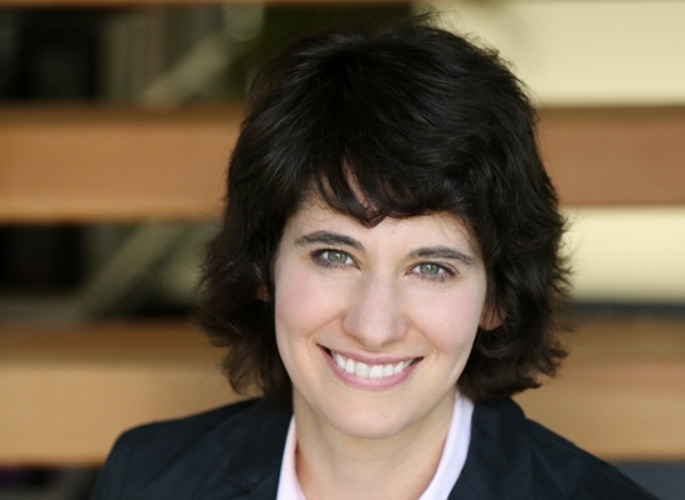Faculty Spotlight: Simone Ispa-Landa
Pinning down social inequality and exclusion
Get all our news

IPR education sociologist Simone Ispa-Landa forges ahead in the study of "subtle" inequality.
From observing how individuals cope with having a visible criminal record, to how white students and teachers in affluent suburban schools structure the experiences of their black classmates, IPR sociologist Simone Ispa-Landa seeks to uncover how race, gender, and stigma operate on the day-to-day, experiential leve
“One thing that I’ve captured is what it’s like to be in the group that doesn’t have the power and resources, or is struggling with a system that systematically denies them power,” Ispa-Landa explained. “I’ve also examined how people make sense of that system, how they justify it, and what strategies they use to cope with it.”
Her training as a sociologist came at Harvard University under the mentorship of renowned sociologists Orlando Patterson, Robert Sampson, Chris Winship, and William Julius Wilson. After earning her PhD in 2011, she came to Northwestern, where she is forging ahead in the study of “subtle” inequality—or how things that are ostensibly “equal” actually function in ways that are highly unequal.
“It’s interesting to understand how inequality really works,” Ispa-Landa said. “I feel like we all talk about inequality all the time, but it’s really hard to pin down how people actually experience it, or the subtle things that can happen to increase or decrease a person’s sense of power.”
Examining race and gender in school diversity programs
More than 50 years have passed since Brown v. Board of Education desegregated American schools, yet many schools still struggle to achieve equality of opportunity.
Ispa-Landa has studied programs such as Diversify, which buses minority students from an urban school district to neighboring suburban schools in an attempt to rectify the racial isolation of predominantly white suburbs. But even with the bused-in students, African-American students still are very much in the minority, comprising between 2 and 9 percent of these schools’ populations. Ispa-Landa’s contribution is to study these programs—not just from the perspective of race, but also of gender.
In one study, she found African-American boys were able to draw on perceptions of African-American masculinity to access suburban social networks. Their suburban peers encouraged them to conform to stereotypes that made them seem “street smart,” but also to “code-switch” their speech and mannerisms to make their white peers comfortable.
African-American girls, however, were excluded from the suburban social network. Stereotyped as “ghetto” and “loud,” their suburban peers talked about them in ways that suggested that their femininity was deviant.
A second study found Diversify students racially classified some schools as “white,” equating it with a school’s ability to produce achievement. The students believed their schools were good because of their whiteness—and they tended to reject their African-American peers who they saw as propagating negative black stereotypes. Such racial categorization of achievement, Ispa-Landa suggests, might have negative effects for African-American group cohesion.
“Diversify looks like a great program on the surface, as it’s increasing diversity, but on the ground there are all these things that can make it a painful experience,” Ispa-Landa said. “The best interventions are the ones that respond to people’s real experiences and the way they really live their lives, instead of how we imagine they live their lives.”
Understanding those who seek to expunge criminal records
The Municipal Legal Aid Society (MLAS) offers free walk-in legal services to individuals looking to expunge their criminal records, or remove them from public view. While studying expungement procedures might seem like a drastic switch from researching race in education, Ispa-Landa explained how both lines of research analyze stigma and how individuals strive to overcome it.
In 2012, Ispa-Landa interviewed 53 expungement-seekers. In a study recently published in Criminology, she found people with criminal records tried, but failed, to persuade potential employers and landlords to overlook their record. They also faced restricted educational opportunity. Her current work explores how, long-term, individuals who do not get their criminal records expunged cope with the disappointment.
“This study showed the extent to which people who have criminal records really feel like they should get a second chance,” Ispa-Landa said. Expungement-seekers commonly argue that the criminal justice system unjustly attaches permanent stigma to past offenses.
Surveying principals in high-poverty schools
In another line of research, Ispa-Landa steps out of the classroom and into the principal’s office to look at how principals in high-poverty schools manage parents whom they often consider to be “difficult.” Like her other research, the study has implications for inequality; by granting the requests of some parents (but not others), principals’ everyday decision-making can influence which children receive the most coveted educational resources.
Ispa-Landa hopes her research can help increase understanding of what other people or groups are experiencing on a day-to-day level. “I think the world can always use more empathy,” she said.
Simone Ispa-Landa is assistant professor of human development and social policy and an IPR fellow.
Published: June 20, 2016.